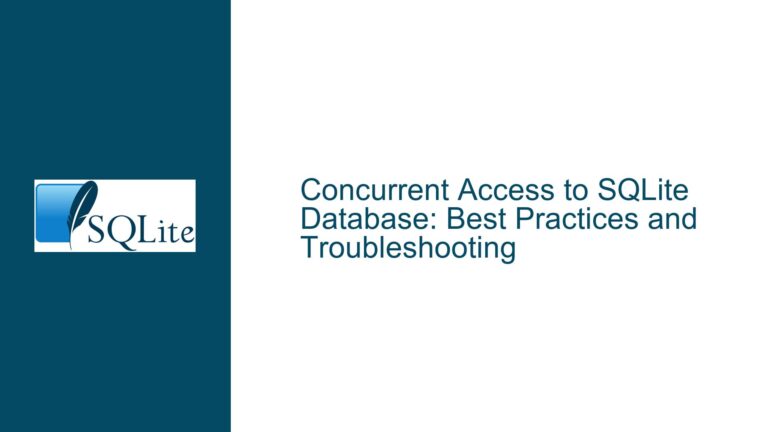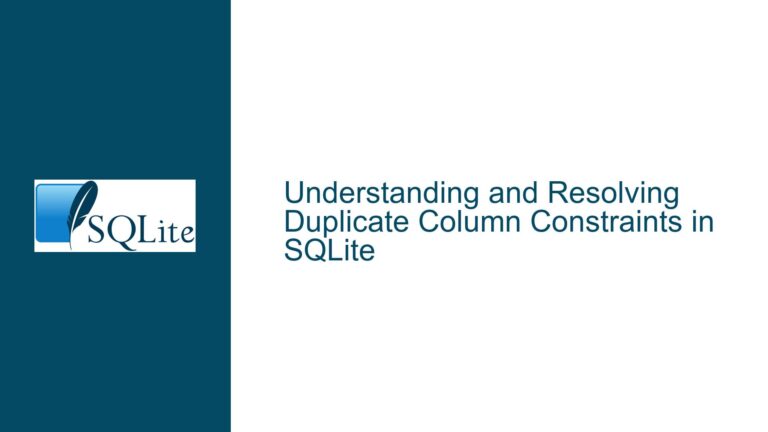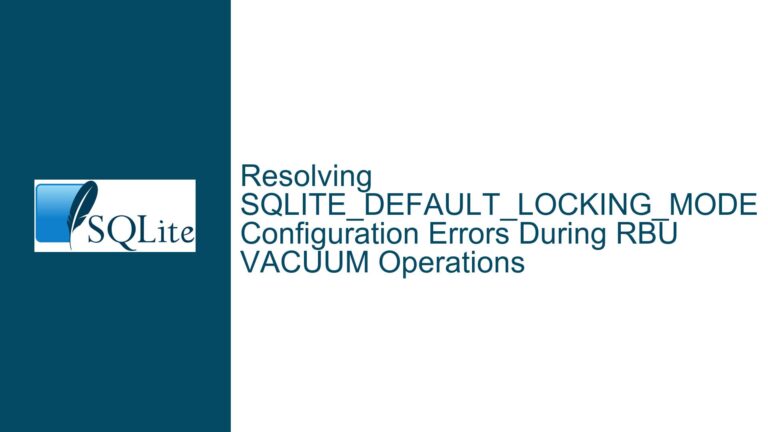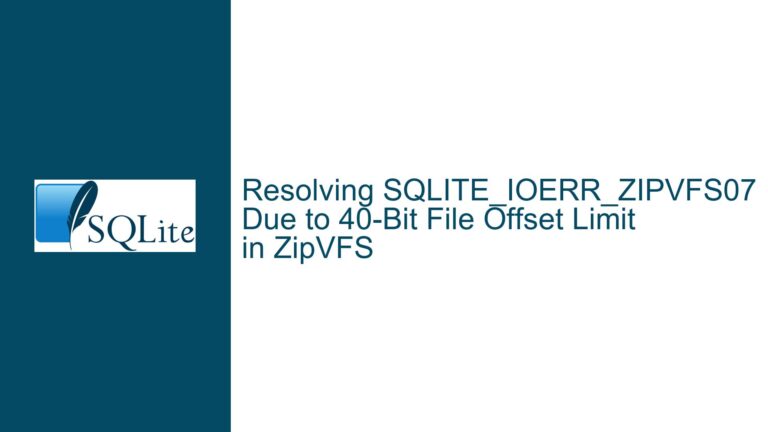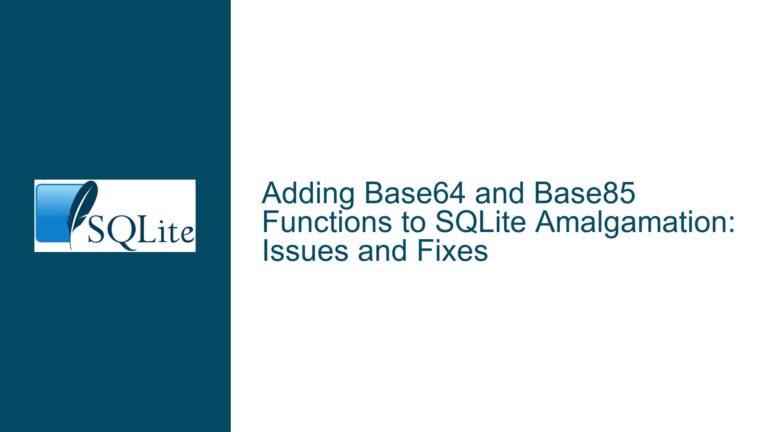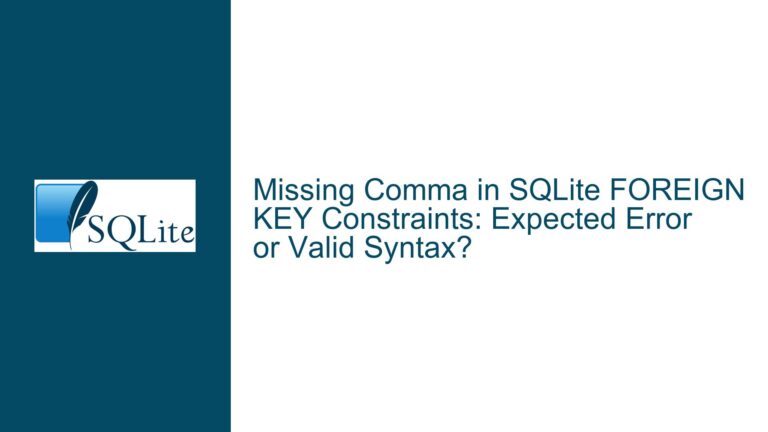Thread-Safe Row ID Retrieval in SQLite: Issues and Solutions
Understanding the Thread-Safe Retrieval of Insertion Row IDs in SQLite The core issue revolves around the thread-safe retrieval of the last inserted row ID in SQLite, particularly in a multi-threaded environment where multiple threads may attempt to insert data concurrently. The challenge is to ensure that each thread can reliably obtain the row ID of…

